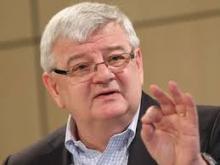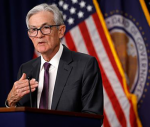You are here
Recharging Europe's Franco-German engine
May 04,2023 - Last updated at May 04,2023
BERLIN — Since Russia’s invasion of Ukraine in February 2022, Europe has undergone a radical transformation. Both the European Union and NATO have reacted with exceptional unity; all the old conflicts within these organisations seemed anachronistic in view of war on the continent and disappeared seemingly overnight.
But tensions are bubbling beneath the surface of the EU’s newfound cohesion. This is common knowledge in the bloc’s two most populous and economically important member states, Germany and France, which are increasingly at odds.
Regularly scheduled inter-governmental meetings have been cancelled. While French President Emmanuel Macron and German Chancellor Olaf Scholz (together with then-Italian Prime Minister Mario Draghi) took a historic joint trip to Kyiv, where they met with Ukrainian President Volodymyr Zelensky, they did not organise a similar visit to Beijing, even though it certainly would have strengthened Europe’s position.
Instead, Macron embarked on a solo three-day trip to China and, on the way home, told an interviewer that Europe must avoid getting “caught up in crises that are not ours” — a reference to Taiwan — and resist becoming a “vassal” of the United States, drawing criticism from both sides of the Atlantic. His divisive comments have all but ensured that the EU’s China policy will drive an even larger wedge between France and Germany and weaken transatlantic relations, even though Europe is more reliant than ever on US military might in the face of Russia’s aggression.
This is obviously the worst possible moment for Europe and the US to drift apart. The strategic challenge posed by the Ukraine war has intensified China’s efforts to establish a new world order in which Russia is permanently dependent on it, the global economy revolves around Eurasia, and China sets the terms for international governance institutions. In the face of these Chinese ambitions, now more than ever the transatlantic partnership is in need of strengthening.
In Paris, on the other hand, the questions concern how much Scholz wants to reshape bilateral relations and how much importance he attaches to them, given Germany’s official silence on the subject. More broadly, the French want to know what kind of Europe Scholz wants.
To be sure, Scholz is not a particularly gifted political communicator, with the notable exception of his “watershed era” speech, delivered immediately after the Russian invasion of Ukraine. But that does not explain why Scholz has not articulated his views on the Franco-German relationship, the bloc’s beating heart, and why his government’s ambitions for the EU remain opaque. Clarification on both issues is urgently needed.
Estrangement is the last thing France and Germany can afford, given the war in Ukraine, the broader Russian threat to Europe, and the geopolitical challenges posed by China and Russia’s pursuit of a Eurasia strategy. Such a split would weaken Europe at a time when the exact opposite, increased Franco-German cooperation, is required.
Rebuilding such cooperation won’t be easy. The two neighboring countries hold opposing views on some of the most important policy issues: Relations with NATO and the US, energy supply (nuclear versus renewables), European space technology, joint arms procurement, and the bloc’s defense capabilities (and the extent to which NATO should be involved). Then again, the Franco-German relationship has never been simple: They are so alike and yet so different.
From its very beginning, it has been understood that the EU will make progress only when its two largest economies move in tandem. While no single member state is capable of dominating the bloc, Germany and France are each strong enough, even in an enlarged EU, to prevent any move toward “ever-closer union” should they choose. As a result, addressing the new geopolitical and security requirements on the European continent will require a joint Franco-German vision and a willingness by both countries to compromise.
Whether Macron and Scholz get along or get on each other’s nerves is secondary, because Europe is both states’ raison d’être. There is no alternative. Moreover, Brexit has shown that a return to the European nation-state system of the nineteenth century is out of the question: The “global Britain” promised by the Brexiteers has proven to be a complete illusion.
Russian President Vladimir Putin’s war on Ukraine and his threat to Europe brutally demonstrate the necessity of the EU. But even before February 2022, the ongoing changes to the global order had made it clear that European states are too small for the world of the twenty-first century. Their choice is straightforward: Peace, freedom and prosperity when together, or conflict, political instability, and control by others when separate.
Franco-German cooperation remains indispensable for the EU, particularly when its geopolitical situation is precarious and its economic prospects are in doubt. At best, continued estrangement will cost the bloc precious time at a moment when it must make huge technological advances to keep pace with the US and China. At worst, it could result in a European catastrophe, something every responsible politician should want to avoid.
Europe needs a well-functioning Franco-German engine. It cannot afford even a temporary breakdown.
Joschka Fischer, Germany’s foreign minister and vice chancellor from 1998 to 2005, was a leader of the German Green Party for almost 20 years. Copyright: Project Syndicate, 2023.












